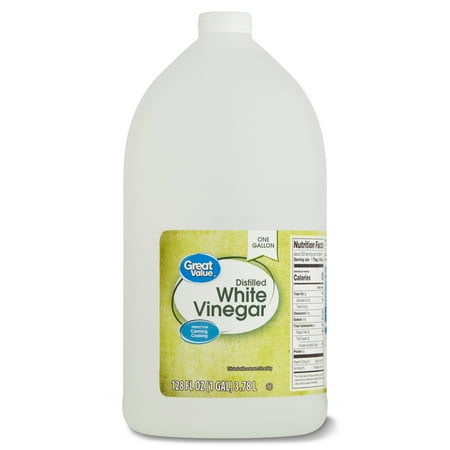How does vinegar prevent pumpkins from rotting? Experts reveal 4 ways to use this affordable household item to preserve your pumpkins this Halloween
Prolong the life of your ghoulish gourds with these simple vinegar tricks

Chiana Dickson
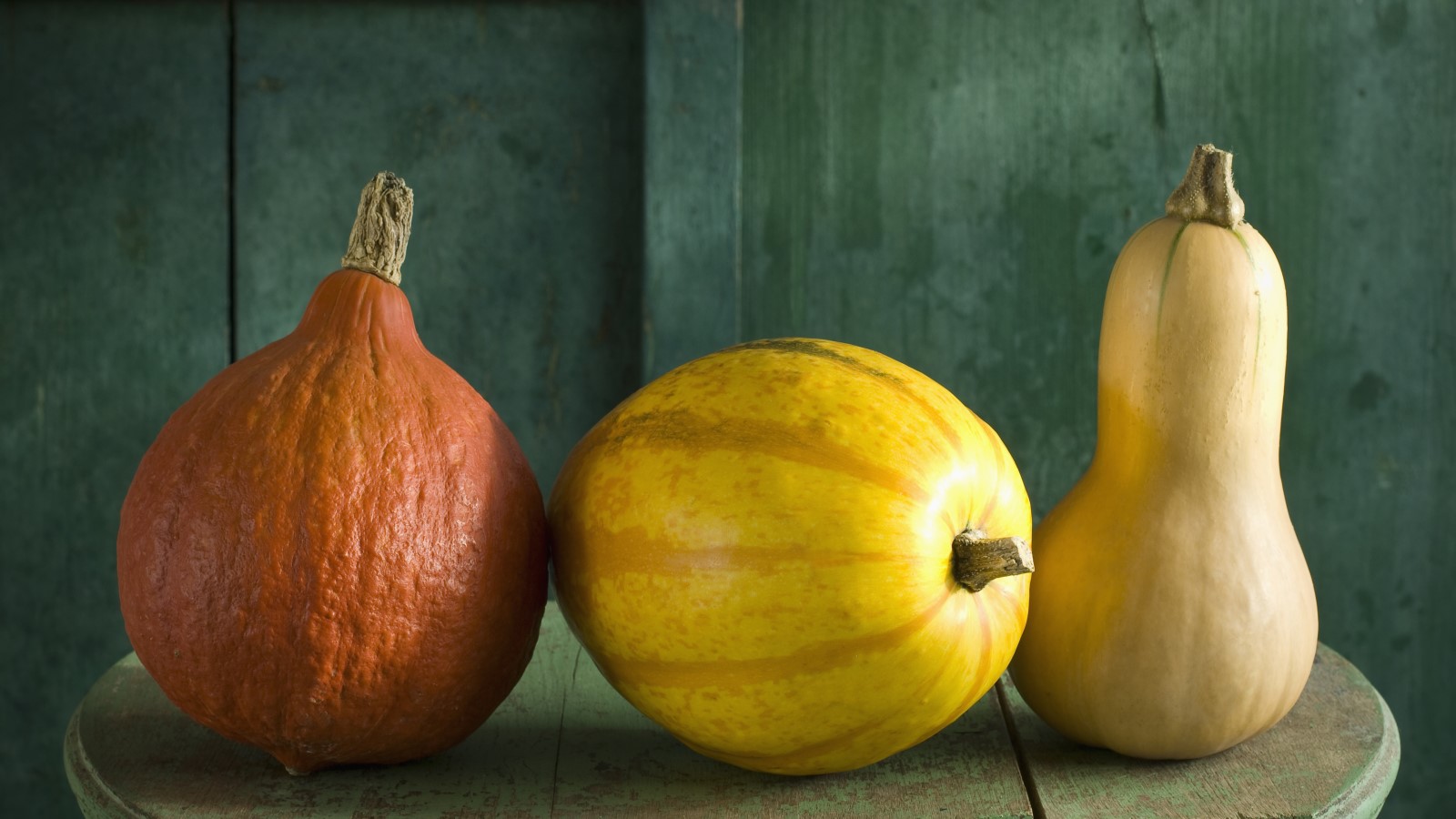
As one of the best parts of Halloween is pumpkin carving, you might be looking for ways to extend the life of your jack-o'-lanterns and keep them looking spooky all season.
Preserving a pumpkin with vinegar is one of the best eco-friendly and affordable ways to protect your masterpieces, keeping them free of toxic chemicals around children and animals, from the unavoidable effects of oxidization for longer– and it really works.
So, if you want to stop your pumpkins from rotting, here is why vinegar works, and four clever ways to use it this fall to prevent premature pumpkin putrefaction.
How does vinegar prevent pumpkins from rotting?
'A vinegar water solution is an ideal method for preserving pumpkins, both carved and uncarved,' says Rachel Crow, garden editor for Homes & Gardens. 'This method is especially good if you are planning on storing your pumpkins outside as fall porch ideas or Halloween porch decor as it will ward off pests and prevent mold while not harming other curious wildlife such as squirrels and deer, pets, or children like bleach might.'
As you can use vinegar for cleaning, due to its highly acidic properties, it can also prevent the growth of mold and bacteria from developing on the pumpkin's skin and inner flesh when carved.
'Vinegar acts as a natural preservative because of its acetic acid content, which has antifungal and antibacterial properties,' says Sarah Fletcher, interior designer and CEO of Flower Delivery. 'On a carved pumpkin, vinegar helps inhibit the increase of mold, bacteria, and different microorganisms that boost up the rotting procedure. By developing a slightly acidic environment on and in the pumpkin, decomposition is slowed, keeping your pumpkin looking good for longer.'
This works effectively as vinegar reduces the pH of the pumpkin to well below 4.6. 'Most mold and bacteria spores are found on the rind, as they’re picked up during growth, transport, and storage,' says Dr. Bryan Quoc Le, food scientist, food engineer, food industry consultant, and author of the book 150 Food Science Questions Answered (available at Amazon).
Design expertise in your inbox – from inspiring decorating ideas and beautiful celebrity homes to practical gardening advice and shopping round-ups.
'The vinegar creates an inhospitable environment for most molds to grow, which are responsible for the production of enzymes that start to soften the pumpkin’s internal structure. That is the first step to rot, as the starches and fibers are more difficult for bacteria and yeast to break down without the assistance of those mold enzymes. The lower pH also inhibits the activity of many enzymes as well, so even if mold does grow, it will not be able to soften the pumpkin as quickly.'
Here are some ways to use vinegar:
1. Preserve carved pumpkins with a vinegar bath
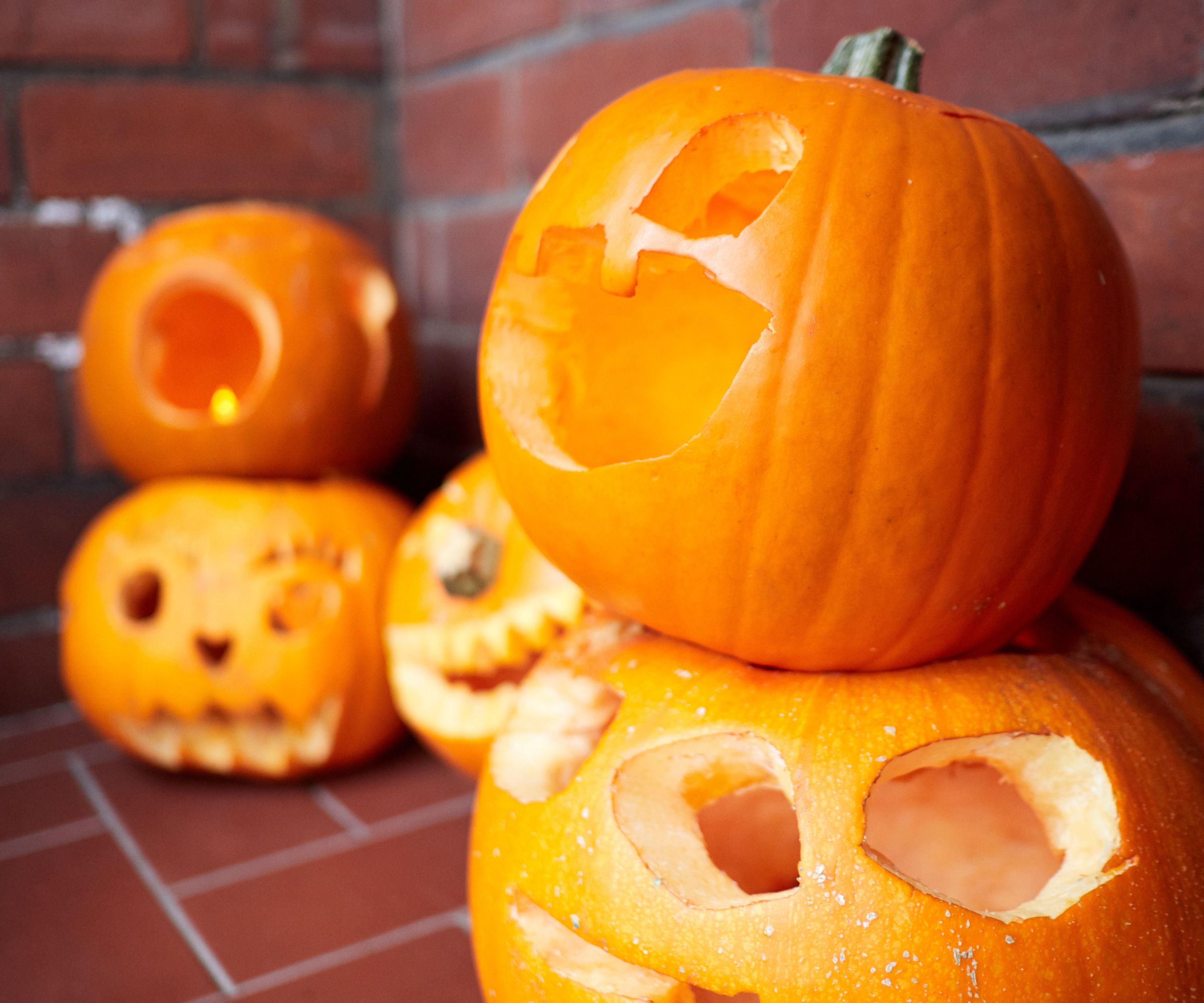
'When you want to preserve your Halloween pumpkins, it is best to add the preservative straight after carving while the pumpkin is still fresh,' says Crow. 'This will ensure the oxidation process is slowed from the beginning and yield better long-lasting results.'
Once you have carved your pumpkins for your outdoor Halloween decor ideas, fully submerge your pieces in a bath or large tub (such as the STERILITE 12QT RED Sterlite 12 Quart Dishpan Basin available at Amazon) or bucket full of 10 parts water and one part white vinegar. Using a heavy object to carefully weigh them down, soak the gourds for 20 to 30 minutes before allowing them to air dry out of direct sunlight.
'You need to keep the inside of a carved pumpkin moist to prevent it from collapsing,' Crow adds. 'Spray the inside of the pumpkin with the vinegar water spray daily to maintain its appearance for longer.'
2. Preserve uncarved pumpkins with a vinegar spray
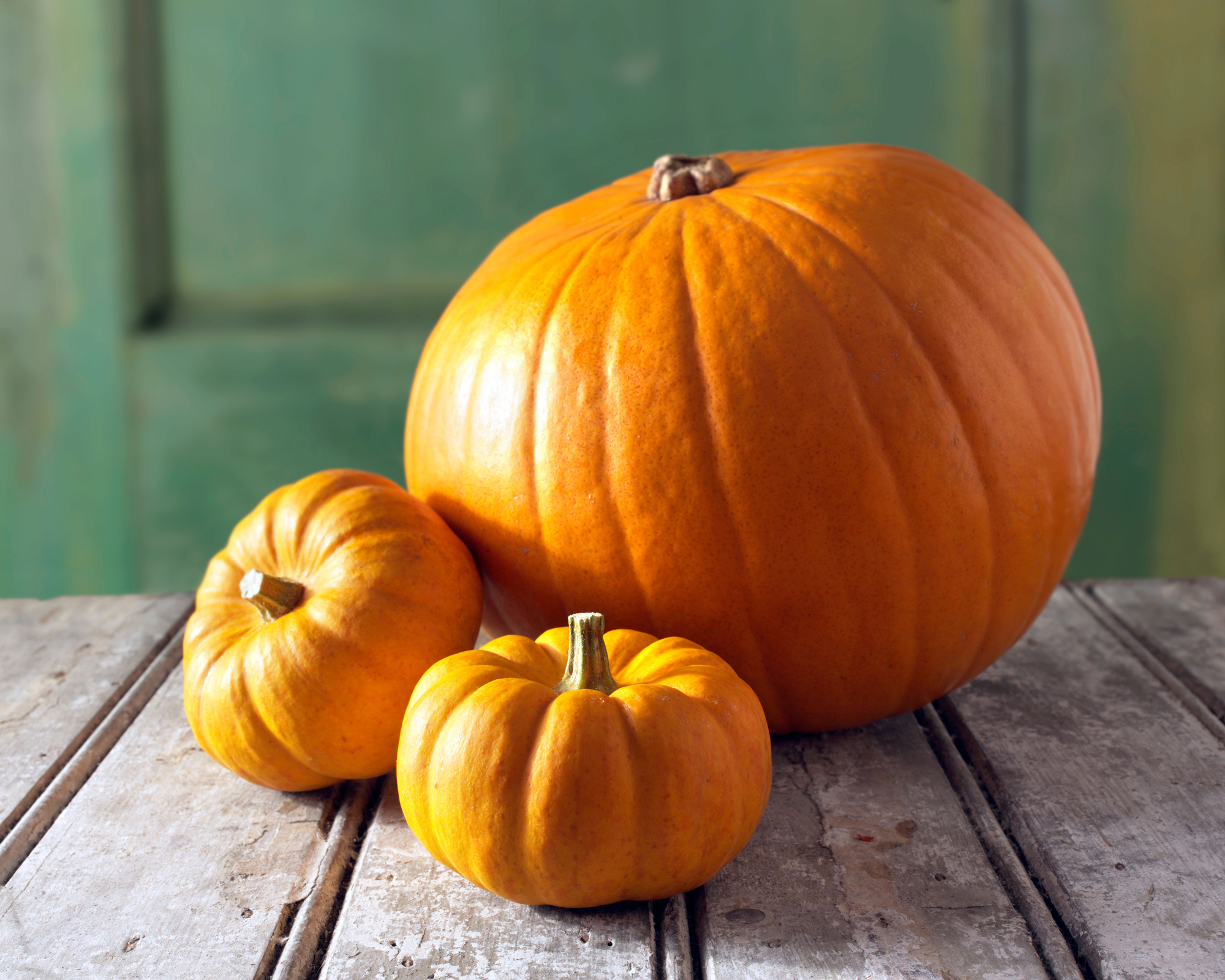
Vinegar can also help to preserve your easy no-carve pumpkin ideas too. If you do not want to submerge your whole pumpkins as you do carved pumpkins, combine 10 parts water to one part vinegar in a spray bottle (such as the Great Value All Purpose Plastic Spray Bottle available at Walmart) and thoroughly coat the outside of the pumpkin skin and allow to air dry.
'This will not help the pumpkins to last forever,' says Crow, 'but it will extend their life span enough to celebrate Halloween without worrying too much about ephemeral decor.'
This can also be used for carved pumpkins: 'I'd recommend using white vinegar for this purpose over apple cider or another kind, and just spray down the pumpkin (including the inside for jack-o'-lanterns) every couple of days,' says Andre Kazimierski, CEO at Improovy.
3. Wipe down your pumpkins with vinegar for regular maintenance
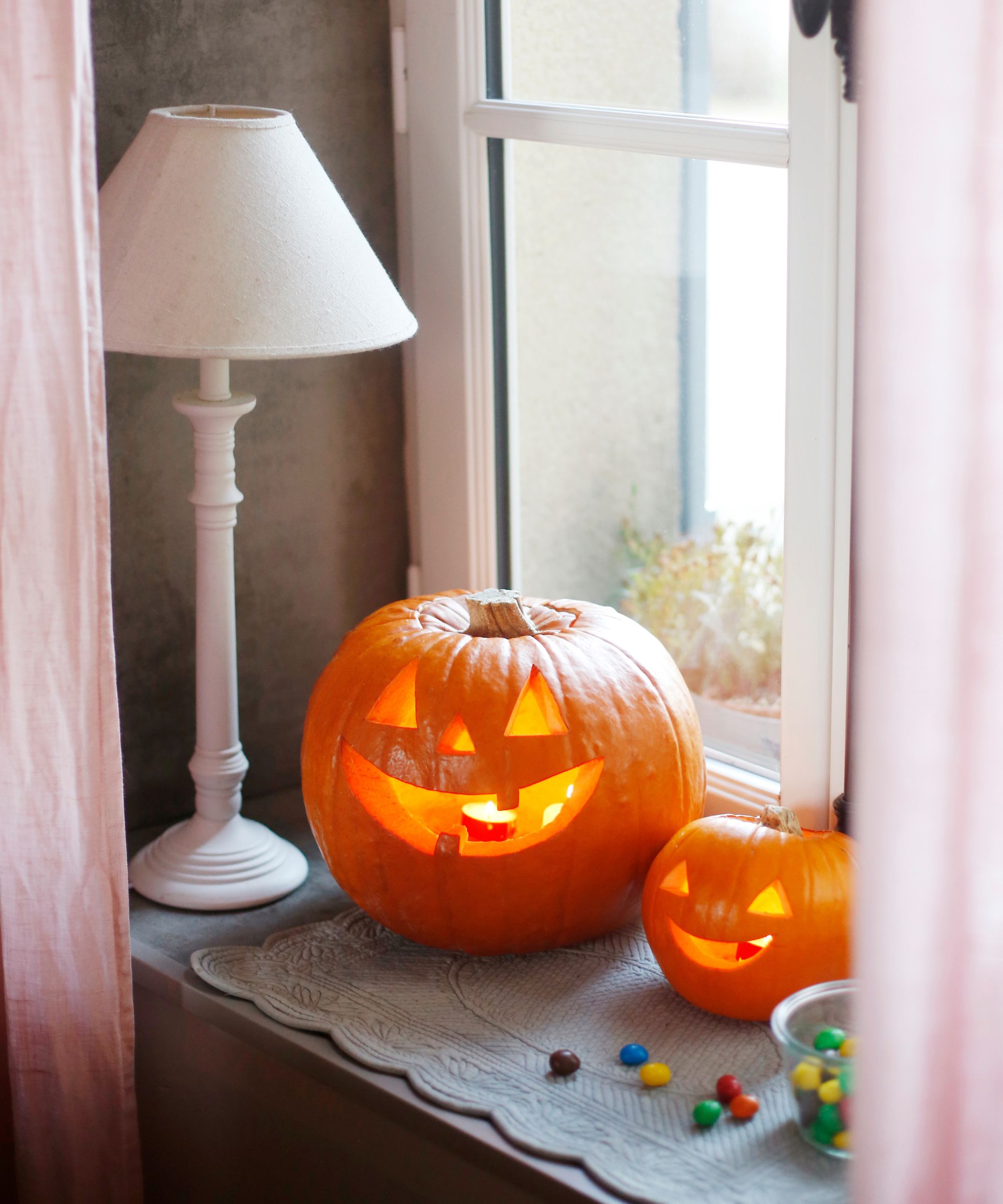
'For a brief protection method, use a cloth soaked in a vinegar and water to wipe down the interior and outside of your carved pumpkin,' says Fletcher. 'This is specifically beneficial for maintaining freshness throughout the Halloween season.' We recommend the bestselling HOMEXCEL Microfiber Cleaning Cloth available at Amazon for this.
Jeremy Yamaguchi, CEO of Lawn Love, suggests a 1:1 ratio for making this cleaning solution, perfect for preserving your front porch Halloween decorations.
4. Use vinegar-soaked bread
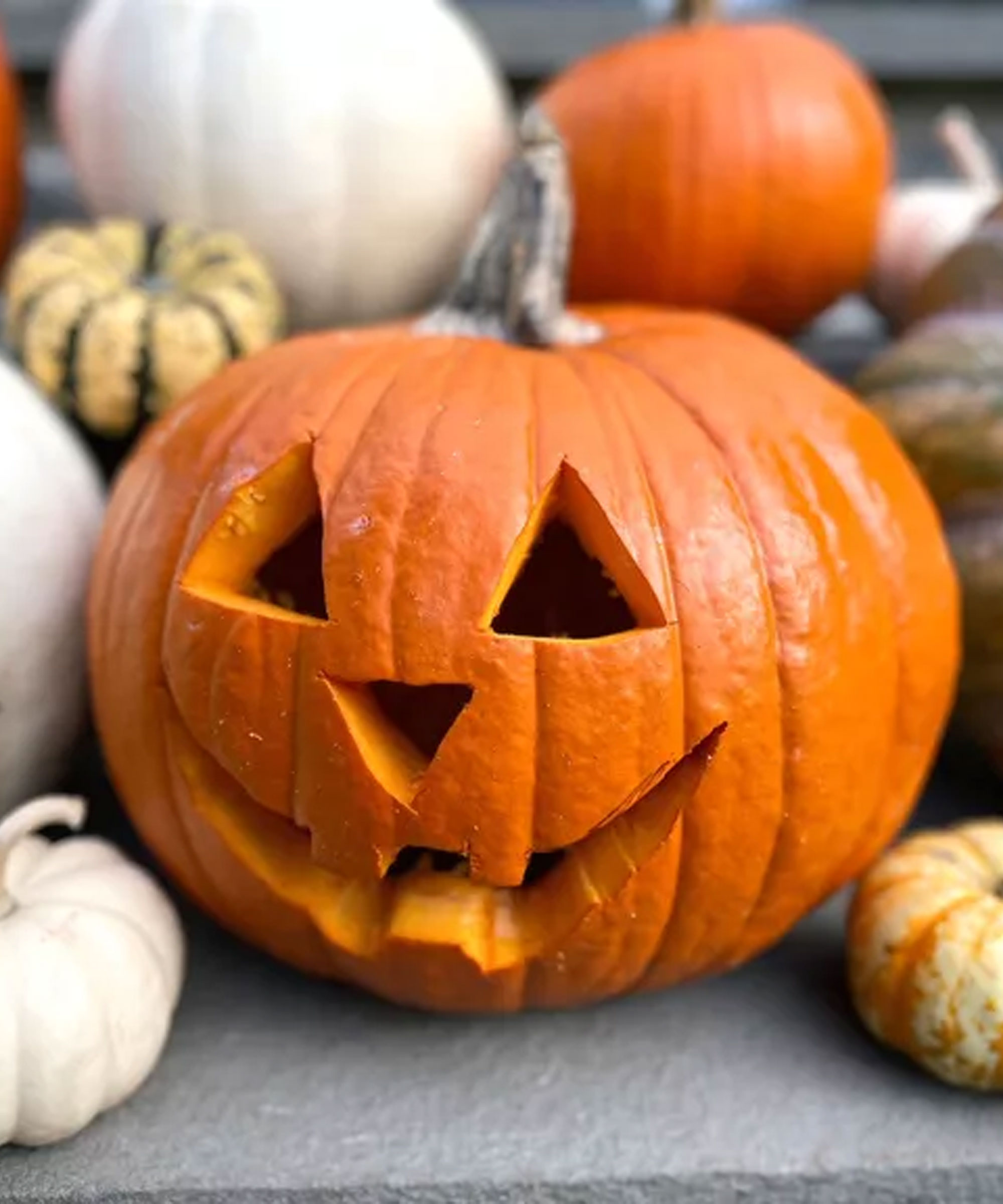
This is a more unusual technique, but it requires less upkeep and can have long-lasting effects. 'Another trick is putting vinegar-soaked bread inside the pumpkin,' says Jonas Zook Jr, owner of Sweden Valley Cabins. 'The bread releases acidity for weeks, protecting the pumpkin. Replace the bread regularly,' and remove promptly if you notice it attracting any unwelcome winter backyard pests.
FAQs
How long can an uncut pumpkin last?
The lifespan of an uncut pumpkin can depend on how it was grown and if it was protected from diseases. The ideal pumpkin can last between eight and 12 weeks if it had the perfect growing conditions.
How long will pumpkins last on the porch?
On a chilly porch, a carved pumpkin may only last a few days or up to one week, if the temperatures are low enough. Pumpkins will last longer on the porch if they are protected from the weather and pests, and vinegar spray is a great way to stop squirrels from eating your pumpkins.
'Pair the vinegar remedy with other guidelines, such as keeping your pumpkin out of direct daylight and faraway from intense temperatures, to maximize the lifespan of your Halloween décor,' advises Fletcher.
Ready to get started? Here's how to carve a pumpkin.

Ottilie joined Homes & Gardens in 2024 as the News Writer on Solved, after finishing a Master's in Magazine Journalism at City, University of London. Now, as the Sleep Editor, she spends her days hunting deals and producing content on all things sleep – from mattresses and sheets to protectors and pillows, all of which she tests in her own home. She also has particular expertise in home fragrance, covering everything from candles to reed diffusers.
Previously, she has written for Livingetc and Motorsport Magazine, and also has a Master's degree in English Literature and History of Art from the University of Edinburgh, where she developed a love for inspiring interiors and architecture.
- Chiana DicksonKitchen Appliances Editor
